Are you interested in serving people to help them overcome their addiction and recover, enjoying a high-impact career? Certified Alcohol and Drug Counselor Training is one of the most rewarding careers to consider in 2025.
As the rates of substance use disorders across the country have been sky-rocketing and the essentiality of mental health service grows, supporting and counseling professionals are in demand. Be it as someone trying to just begin or as someone you want to take to the next level with your qualifications, this guide will take you through:
What Is Certified Alcohol and Drug Counselor Training?
The Certified Alcohol and Drug Counselor Training is an organized teaching course and practical training intended to equip specialists to support the patients struggling with substance use and addiction-related conditions.
Programs typically include:
- The science and psychology of addiction
- Counseling techniques
- Ethics, documentation, and confidentiality
- Relapse prevention and harm reduction strategies
- Trauma-informed and culturally competent care
If completed successfully, you can attain a certified addition counselor certification, and can practice at clinics, hospitals, and treatment centers, schools, and privately.
Why Choose a Career in Addiction Counseling?
1. High Demand, Stable Job Growth
Based on the U.S. bureau of labor statistics, substance abuse, behavioral disorder and mental health counselors will experience high employment growth of 18 percent till 2032, which is way ahead of the national average.
2. Make a Real Difference
Through this training, you will form an important aspect of helping someone to recover through the journey of moving a person to a down-and-out situation to a positive change in life.
3. Multiple Career Pathways
After completing Certified Alcohol and Drug Counselor Training, you can branch into:
- Drug and alcohol counselor training
- Recovery Coach Academy programs
- Certifications for mental health counselors
- Peer-based roles through Peer Counseling Certification Training
- Specialized SAC Programs for clinical licensure
What’s Included in Certified Alcohol and Drug Counselor Training?
Most programs blend theoretical knowledge with hands-on application. Here’s what you’ll typically cover:
1. Core Addiction Counseling Concepts
- Causes and progression of addiction
- Effects of substances on the brain and body
- Dual diagnosis and co-occurring disorders
2. Clinical Skills & Interventions
- Motivational interviewing
- Cognitive-behavioral therapy techniques
- Treatment and relapse prevention plans
This section aligns closely with what’s taught in drug and alcohol counselor training and SAC Programs.
3. Legal, Ethical, and Cultural Competency
- HIPAA and client confidentiality
- Ethical dilemmas in addiction counseling
- Working with diverse populations
4. Supervised Practicum
You’ll gain real-world experience under the supervision of a licensed counselor — preparing you for certification and future roles.

How It Differs from Peer Coaching and Recovery Coaching
Let’s clarify how Certified Alcohol and Drug Counselor Training compares to other paths:
| Credential | Focus Area | Ideal For |
| Certified Addiction Counselor Certification | Clinical, therapeutic treatment | Individuals pursuing licensure |
| Peer Coach Training | Lived-experience, emotional support | People in recovery helping others |
| Recovery Coach Academy | Accountability & empowerment | Coaches supporting lifestyle change |
| Certifications for Mental Health Counselors | Broader mental health care | Licensed therapists/counselors |
Many professionals stack credentials — starting with Peer Counseling Certification Training, then adding clinical credentials via SAC Programs and Certification in Behavioral Health.
SAC Programs: Your Bridge to Clinical Counseling
SAC Programs (Substance Abuse Counseling Programs) are accredited tracks designed to meet the licensing requirements in most states. They typically include:
- 300–500+ hours of coursework
- Supervised internship hours
- National exam preparation
These programs are ideal for those wanting to move beyond coaching and into fully licensed clinical roles.
Peer Support and Recovery Coaching Options
If you’re unsure about committing to clinical work, start with Peer Coach Training or attend a Recovery Coach Academy. These are non-clinical certifications that allow you to:
- Offer support based on lived experience
- Work in outpatient or community-based settings
- Help people set recovery goals and stay accountable
You can always upgrade to clinical credentials later with Substance Abuse Counselor Training.
Certifications for Mental Health Counselors: A Powerful Add-On
Professionals with dual certifications in addiction and mental health are highly valued. After completing your addiction training, consider expanding your scope by earning:
- LPC (Licensed Professional Counselor)
- LMHC (Licensed Mental Health Counselor)
- Or combine with a Certification in Behavioral Health
This makes you qualified to support clients dealing with both addiction and underlying mental health issues.
Online vs. In-Person Training Options
| Mode | Pros | Best For |
| Online | Flexible, self-paced, affordable | Working adults, rural learners |
| In-Person | Interactive, hands-on, network-building | Full-time students, career changers |
Many institutions offer hybrid models, allowing you to take your Certified Alcohol and Drug Counselor Training in a format that suits your lifestyle.

Ready to Begin Your Career in Addiction Counseling?
Take the first step toward becoming a Certified Alcohol and Drug Counselor today.
For those individuals seeking full Substance Abuse Counselor Training, enrolling in a respected Recovery Coach Academy, or looking to broaden their knowledge through Peer Counseling Certification Training – we can help every step of the way.
👉 Enroll Now in a Certified Training Program Near You
👉 Talk to a Career Advisor About SAC Programs
📩 Still have questions? Reach out to our team today and we’ll help you choose the right path based on your goals.
Frequently Asked Questions (FAQs)
Q1. What’s the difference between Certified Alcohol and Drug Counselor Training and Recovery Coach Training?
Certified Alcohol and Drug Counselor Training is clinical in operation and prepares you to diagnose and treat addiction. Recovery Coach Academy, in contrast, has no client diagnosis or treatment and only deals with the peer support and coaching strategies.
Q2. Can I start with Peer Coaching before becoming a counselor?
Yes. Through SAC Programs, a number of professionals start their reputation by completing Peer Coach Training or Peer Counseling Certification Training to earn experience before progressing into clinical positions.
Q3. How long does training take?
Depending on whether you go full time, part-time, or 100 percent online, this training may last up to two years. There are also 2,000-4,000 supervised hours requirement in most states to be certified.
Q4. Is Certified Addiction Counselor Certification the same as this training?
Yes, the process of Certified Alcohol and Drug Counselor Training usually results in the certification of a certified addiction counselor after you successful pass exams and have attained state licensing.
Q5. Do I need a degree?
Most programs do not need a bachelor degree although it can help you, in some cases, to hold advanced certifications as a mental health counselor or advance faster in your career.
Q6. Can I work as a private coach with this certification?
Yes. Most certified professionals use their training paired with Recovery Coach Academy credential as part of their impetus to provide personal services as a coach or a consultant.
Q7. Where can I find accredited programs?
Look for programs approved by:
- NAADAC
- IC&RC
- State Behavioral Health Boards
You will also explore leading platforms like Laitinen Academy where you have the possibility of achieving stackable certification in the areas of Peer Coach Training, Substance Abuse Counselor Training, as well as Certification in Behavioral Health.
Final Thoughts
Selecting Certified Alcohol and Drug Counselor Training is the answer to a meaningful, secure, career with career advancement available. Do you love to counsel, coach, be available to the community or have a private practice business – you will find the road to your mission of assisting others.
Whether it is a drug and alcohol counselor course, Peer Coach Training, SAC Programs, Recovery Coach Academy or any CCH Educational course, you are not simply taking a certification to finish it right away, but rather, you will be entering into a vocation.
Need help deciding your path?
Let’s create a personalized certification roadmap tailored to your goals. Reach out now!
